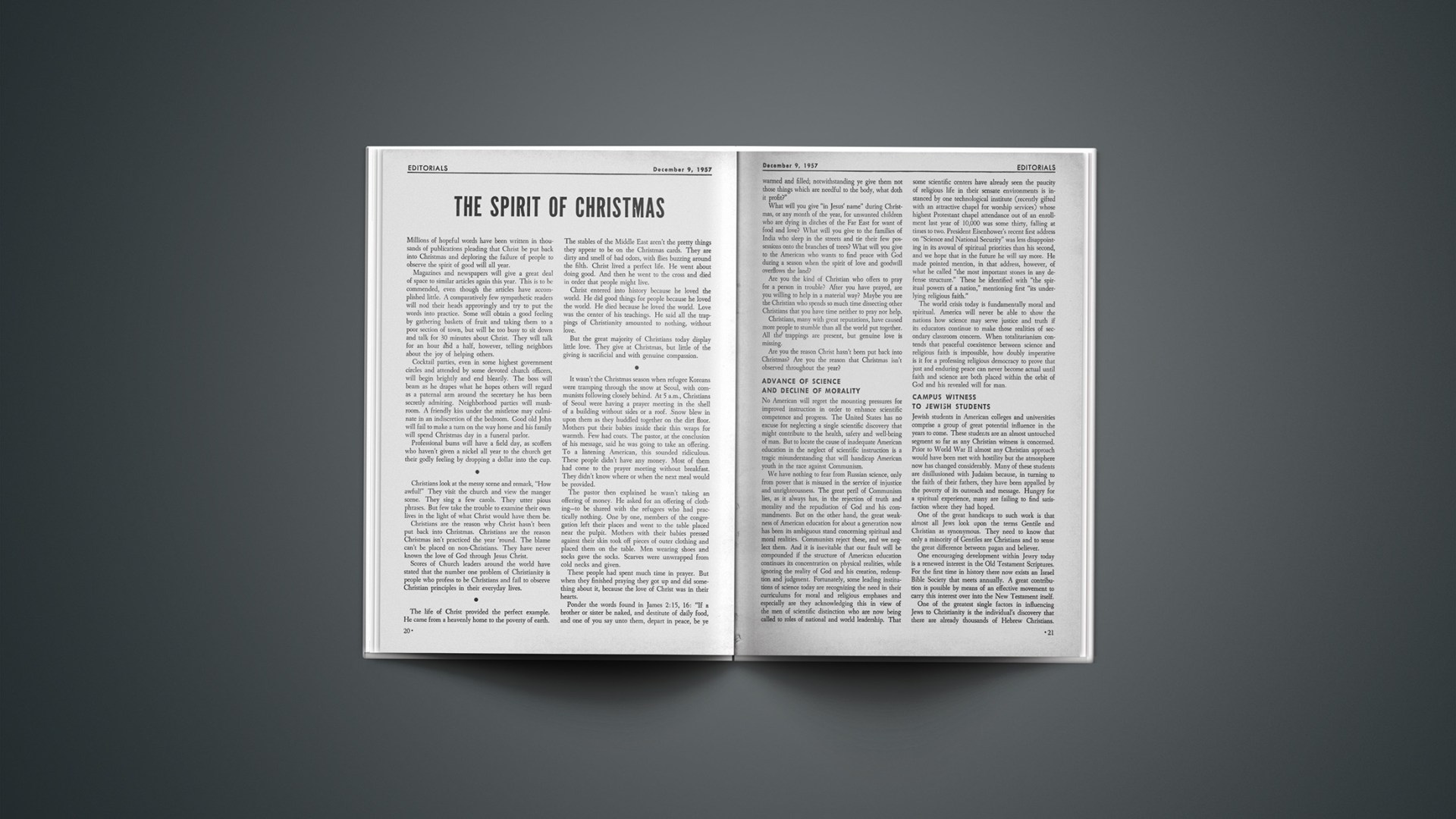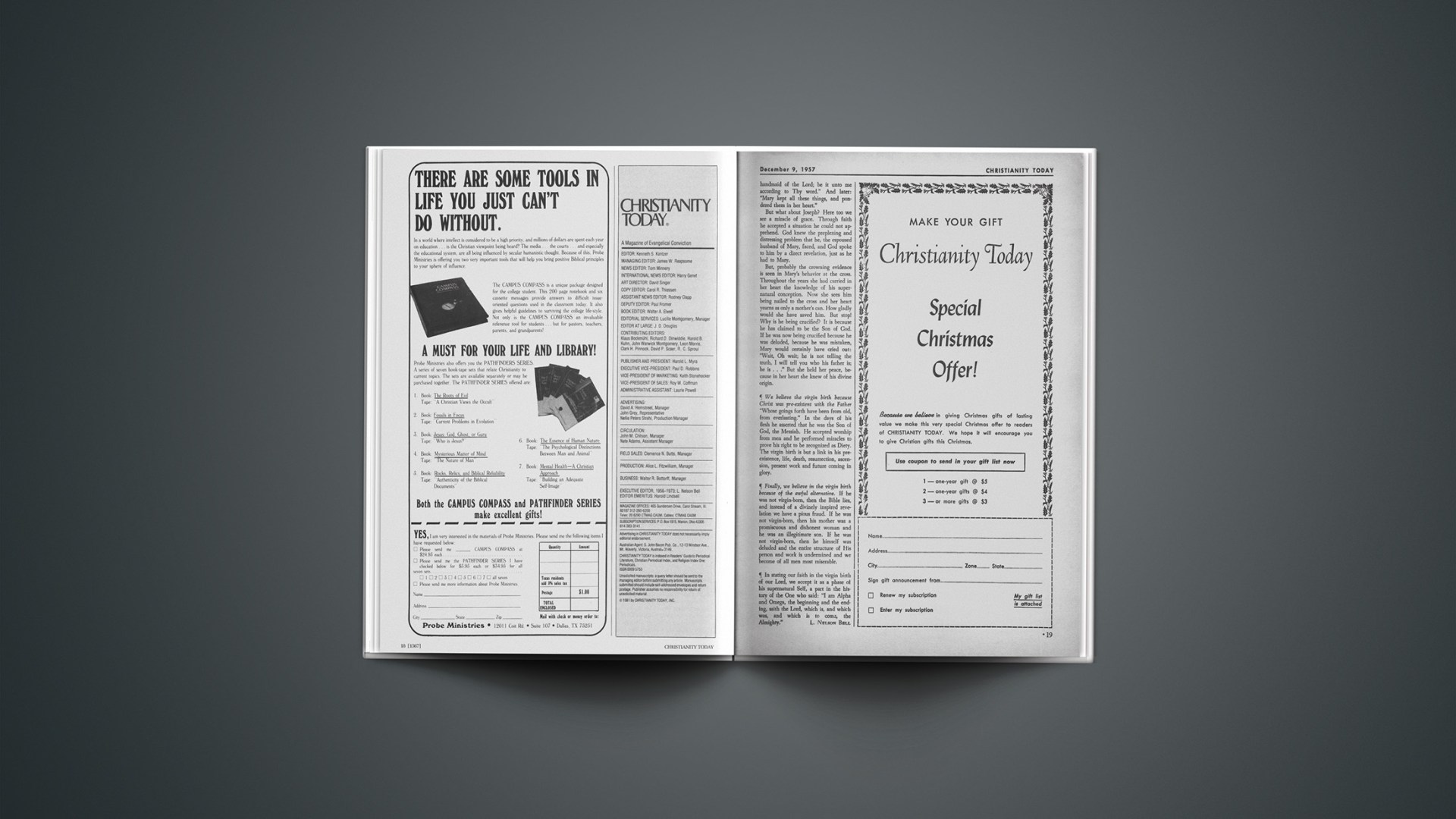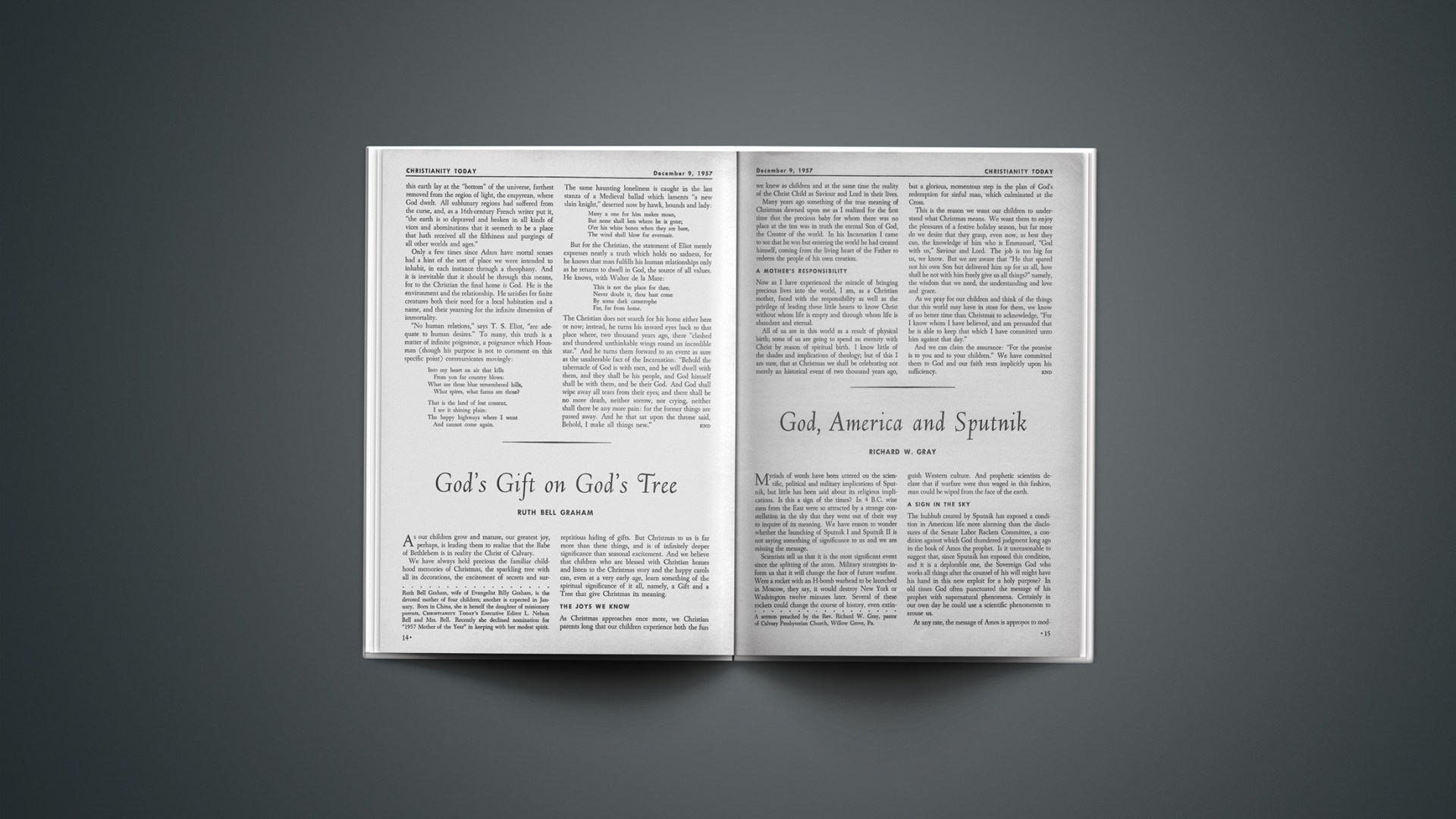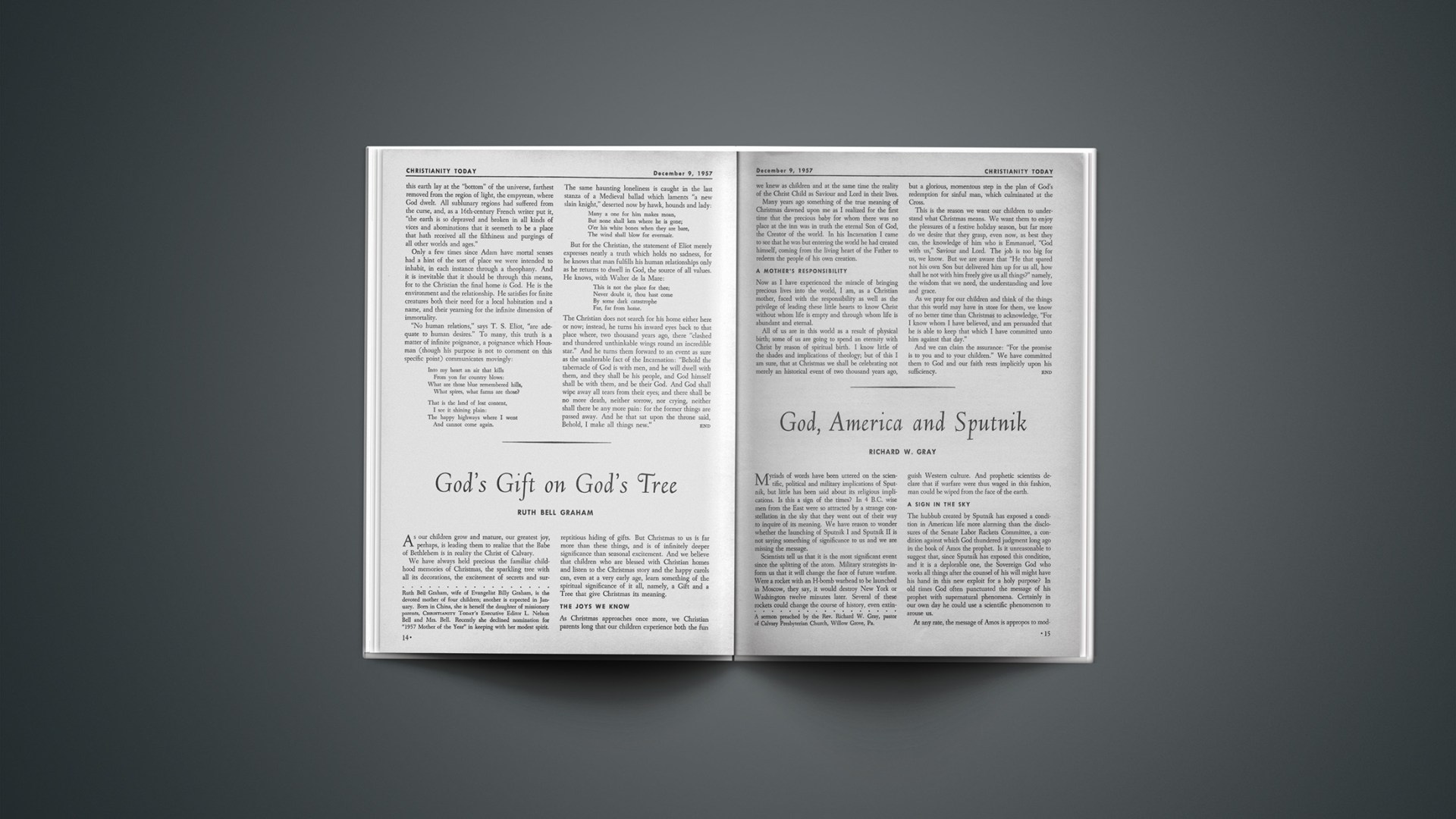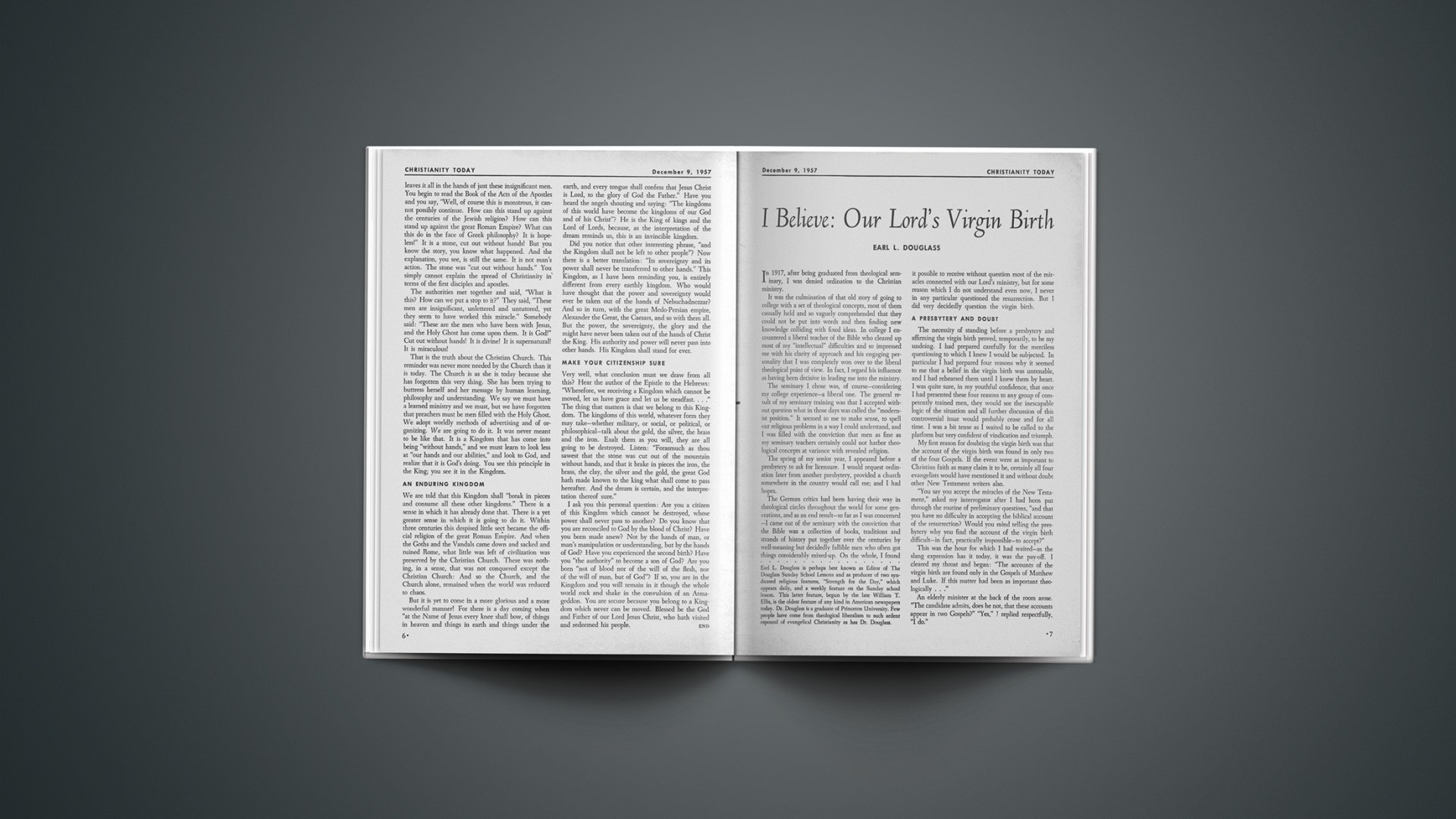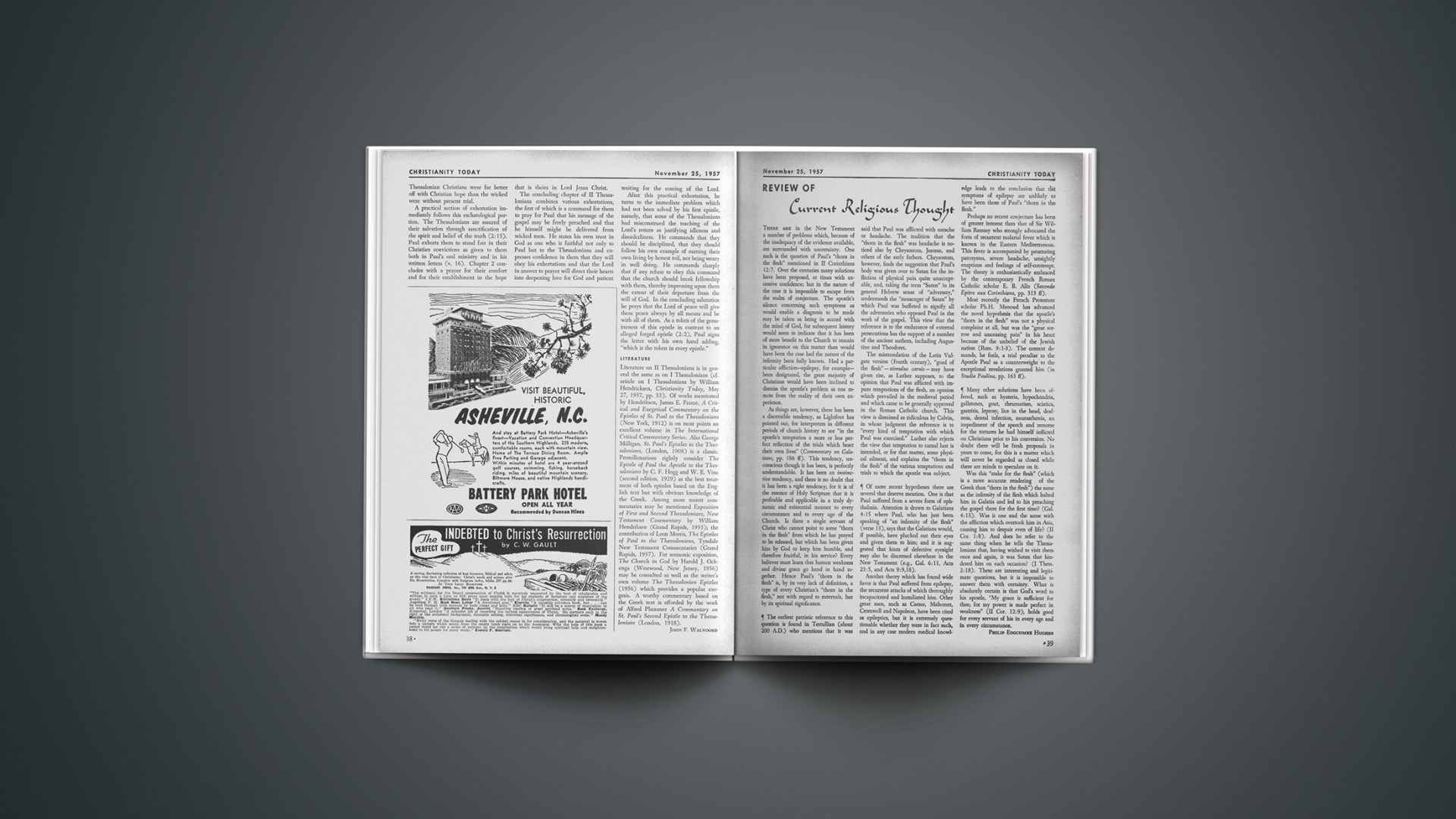December 31 marks the one hundred and fiftieth anniversary of John Newton’s death. But John Newton in evangelical tradition is by no means dead. He has lived on and is remembered today in some of the choicest hymns of Christian praise. What Christian, for instance, has not sung “How sweet the name of Jesus sounds” or “Glorious things of thee are spoken”? Or that simple and direct spiritual autobiography which was written long after a jeopardous career, “Amazing grace! how sweet the sound, that saved a wretch like me”?
Through Many Snares
Quite remarkable, one observes, is the literary quality of these hymns, for Newton in his early days had been the son of a shipmaster, a sailor of little education. He had served his father on the Mediterranean during his youth and later had been impressed into the British navy as a midshipman. Pursuing the typical reckless and godless habits of life at sea, he made several attempts at escaping from his duties there, and for his perniciousness was flogged and later half-starved—an experience to which he appears to allude in the lines, “Through many dangers, toils and snares, I have already come.”
He became for some years a commander in the African slave trade; but because he had employed his spare time to acquire some education, he chanced to read among other books a copy of Thomas a Kempis’s Imitation of Christ. It was this that implanted the seed of his conversion. Newton gave his heart to God and straightway abandoned his sinful habits for a new life. Returning to England, the young convert completed his studies in ministerial preparation and in time took his ordination at Olney church in Buckingshire.
While at Olney, Newton befriended the mentally disturbed poet, William Cowper, and set him to writing hymns. Together they published the Olney Hymns in 1779, the best known of which are perhaps, “Jesus, where’re thy people meet” and “There is a fountain filled with blood.” It is possible that the world would have been less enriched by Cowper’s poetry had he not been encouraged by his friend to write for God.
Social Reforms
But Newton became more than a hymn writer, and his influence expressed itself in the numerous social reforms of his day. Take, for instance, his incitation upon William Wilberforce, champion for the cause of Abolition. When Newton left Olney to become rector of St. Mary Woolnoth, London, he made the acquaintance of Wilberforce. The latter came often to the pastor for counsel and after a period was converted under Newton’s ministry. Familiar with the infamous character of slave trade, Newton enlightened Wilberforce on the state of Negroes in slavery. In May of 1787, the Society for the Abolition of Slavery was founded. Wilberforce directed its proceedings. And before Newton’s death, abolition became law. Slavery was totally abolished by 1833.
Newton has also lived on in the realm of evangelical missions. To illustrate, in 1791 a young irreligious Scot by the name of Claudius Buchanan went to hear Newton preach in London. In spite of himself, he liked the sermon and, after an interview with the minister, was converted to Jesus Christ. As a friend, Newton persuaded the young convert to enter the ministry. Buchanan went to Cambridge and later became Newton’s curate at London. But Newton cherished other ideas for the talented graduate and encouraged him to go to the mission field. It is undoubtedly significant that Buchanan was one of the earliest missionaries to be engaged in the modern missionary movement. Father of the movement had been William Carey, also a beneficiary of Newton’s encouragement and spiritual guidance. But these instances are not all. Newton influenced evangelical missions in other ways; i.e., as founder of the Church Missionary Society, as spiritual father of Thomas Scott who became the first secretary of this Society, and as promoter in the founding of the London Missionary Society.
Credit may go to Newton also for the efforts which Hannah More exerted as a pioneer in the field of Christian education. Miss More had had a brilliant career as a playwright in London, but like the others she had come under the now famous preacher’s ministry. She re-examined her life and her relationship to God and determined to change the direction of her vocation. Seeing the need for better education among children in a period of widespread illiteracy, she started the famous charity schools. But to teach these “sixteen or seventeen hundred” children how to read was not enough, she believed, for they would read wrong things if good literature was unavailable. So it was that she also put her literary abilities to work and created Christian stories and tracts. Two million tracts were sold in the first year and this was a means to establishing the Religious Tract Society. Hannah More had been inspired by Newton’s “vital, experimental religion,” as she called it. And this was the fervent evangelical faith which she conveyed to children and readers alike. Those who caught the spirit from her propagated their faith and the spread of Christian witness has identified the evangelical tradition to this day. John Newton lives on in their faith.
Heartily entering into the religious work and views of Wesley and Whitefield, Newton also provoked the Great Awakening of the century. Today we sing the hymns, enjoy the social reforms, witness the missionary efforts and profit from the Christian education and literature that John Newton as well as others made possible for their generations and ours. In all this, John Newton lives on.
Donald E. Demaray is Associate Professor of Religion at Seattle Pacific College. He is author of Devotions and Prayers of John Wesley just published by Baker Book House.



